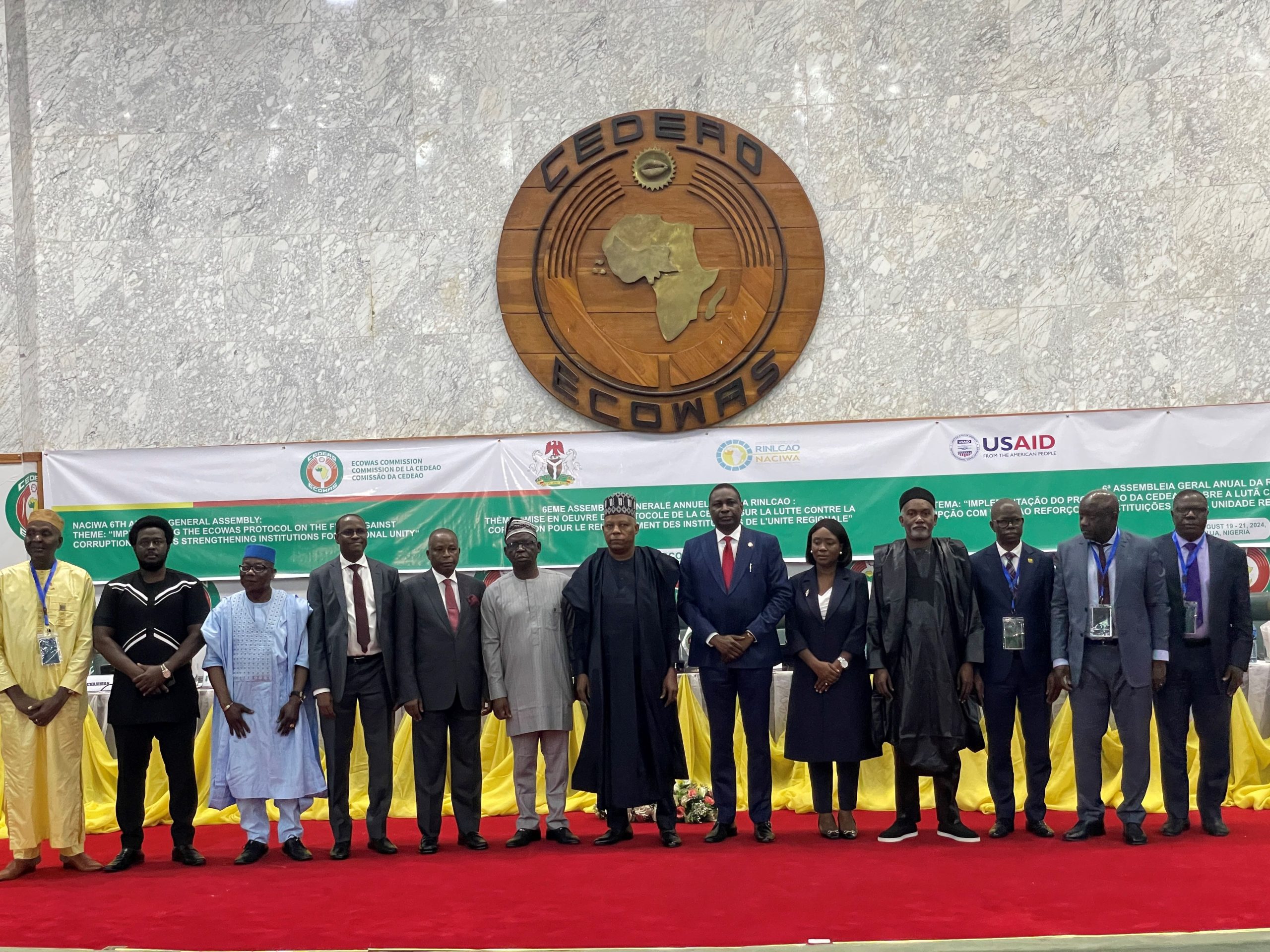The Network of Anti-Corruption Institutions in West Africa (NACIWA), has called for better funding and resourcing of Anti-Corruption agencies in the sub-region, recognizing that adequate human and material resources are essential for the effective discharge of their mandates.
The call was made in a communique signed and issued by the President of NACIWA, Olanipekun Olukoyede, Chairman of the Economic and Financial Crimes Commission (EFCC), at the end of the 6th Annual General Assembly (AGA), tagged “Implementing the ECOWAS Protocol on the Fight against Corruption towards Strengthening Institutions for Regional Unity, which took place at the ECOWAS Secretariat in Abuja recently.
The document also advocated for the urgent need for the development of comprehensive guidelines for the full implementation of the ECOWAS Protocol on the fight against corruption, to bring it in line with other international instruments such as the United Nations Convention Against Corruption (UNCAC) and the African Union (AU) Convention Against Corruption.
It further called on the ECOWAS Commission to expedite the establishment of a Technical Commission for the effective implementation of the ECOWAS Protocol in the fight against corruption, offering NACIWAS’s expertise and support in this endeavor.
Furthermore, in the communique, the sub-region resolved to pursue the harmonization of legal and regulatory frameworks across the region to prevent safe havens for corrupt individuals and facilitate more effective cross-border anti-corruption efforts.
The official report urged member states that have not yet domesticated the ECOWAS Protocol on the fight against corruption into their national laws and policies in order to ensure a unified regional approach to fighting corruption to do so.
The region in the paper expressed commitment to leveraging technology to enhance transparency, accountability, and efficiency in anti-corruption efforts across the region.
NACIWA in the communique resolved to improve monitoring, reporting, and enforcement mechanisms within the region and its member institutions to ensure effective implementation of anti-corruption measures.
The regional body further pledged to deepen public awareness of the negative effects of corruption through comprehensive education and outreach programmes, encouraging active citizen participation in anti-corruption activities.
It also encouraged member institutions to embrace peer learning and knowledge sharing, particularly to support less experienced agencies in developing effective anti-corruption strategies.
While acknowledging with gratitude the generous financial support provided by USAID, which has been instrumental in making the 6th AGA possible, and advancing collective anti-corruption efforts, it also recognized the valuable contribution of all participating member institutions, whose dedication and expertise continue to drive NACIWA’s mission forward.
The document also urged ECOWAS to intensify diplomatic efforts to resolve the differences with the government of Burkina Faso, Mali, and Niger, emphasizing the importance of inclusive regional cooperation in the fight against corruption.
It further commended the positive progress made across member states in improving legal and institutional frameworks for fighting corruption while urging for continued efforts to strengthen these mechanisms.
The region welcomed the increased involvement of citizens, non-governmental organisations, and the media in anti-corruption efforts across the West African sub-region, recognizing their crucial role in promoting transparency and accountability.
It also applauded the development of the draft ECOWAS Guidelines on Assets Recovery and Borderless Investigation which was presented at the AGA. It urged the ECOWAS Commission to conclude the process with input from member institutions for its finalization and consideration at the next AGA.
The communique recommended the widespread adoption and utilization of Corruption Risk Assessment (CRA) tools among member institutions to proactively identify and mitigate corruption vulnerabilities.
While expressing commitment to strengthening regional collaboration and cooperation to effectively address the transnational nature of corruption, including improved information sharing and joint operations where appropriate, the 6th AGA of NACIWA reaffirmed its dedication to fostering a corruption-free West Africa and called upon all stakeholders to join in this critical mission.
The Assembly expressed gratitude to Mr. President, His Excellency, Bola Ahmed Tinubu, GCFR and ECOWAS for their unwavering support.

